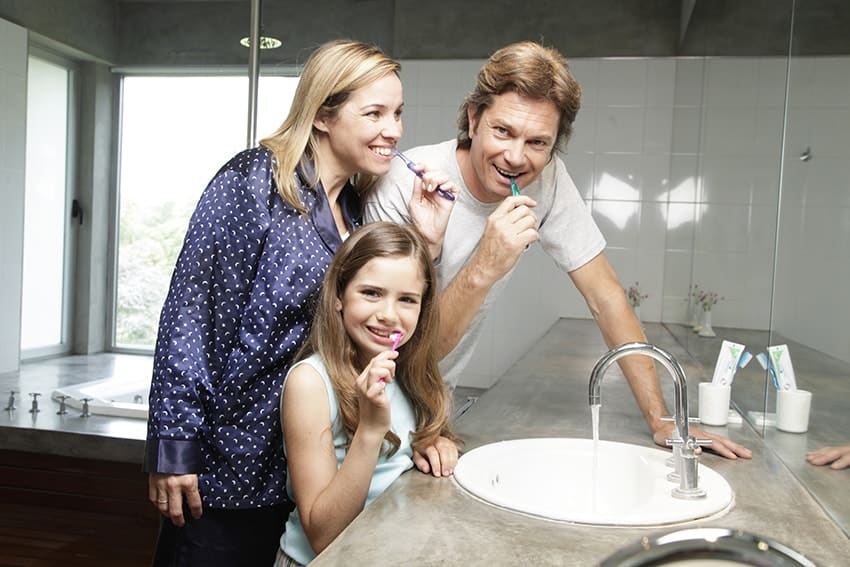Tooth decay is one of the most common chronic diseases that affect children. According to studies, more than half of children aged 2 to 11 has at least one decayed tooth in their mouth.
In this article, we come up with a handy parent’s guide to tooth decay in kids so you’ll know what expect when your child develops a cavity and how to prevent it.

Early Childhood Caries
The American Dental Association define Early Childhood Caries, or ECC, as having at least one missing, decayed, or filled tooth surface in any of the 20 primary teeth.
Causes of Early Childhood Caries
Early Childhood Caries can occur as soon as the first baby teeth appear in the mouth.
The most common risk factor to its development is prolonged exposure of the teeth to sugary fluids, such as when leaving your kid’s baby bottle in his/her mouth while he/she sleeps or when using a training cup.
The sugary fluids in the bottle or cup pool around the teeth, causing decay. This is why ECC is otherwise known as baby bottle tooth decay. Another factor that has a huge impact on your kid’s teeth is diet.
What to Expect
Tooth decay, especially if extensive, can cause pain and discomfort. If left untreated, it can also lead to the damage of the developing permanent teeth underneath.
Most cases of decay require dental work, which can range to simple fillings for small cavities to a full crown for the more extensive ones. Treatment is necessary to prevent decay of other teeth.
Prevention of Early Childhood Caries
The best way to ensure that your kid’s teeth will be decay free is to institute proper oral hygiene early on. In babies, it is important to wipe their gums with a clean washcloth every after feeding.
Once the primary teeth begin to erupt, brush them gently with small toothbrush and water – no need to use fluoride toothpaste yet, water is just fine.
When your child is old enough, usually at age 2, you may begin using fluoride toothpaste. Use a pea-sized amount only and be sure to supervise him/her until you’re sure that he/she can brush properly enough (oftentimes at age 6).
Although very common among kids, tooth decay is easily preventable. Aside from watching your kid’s eating habits and instilling good oral hygiene at a young age, it is also advisable to visit the dentist regularly so that any dental problems can be detected and treatment – be it curative or preventive – can be rendered as early as possible. Always remember, your kid’s dental health is just as important as his/her general health.
